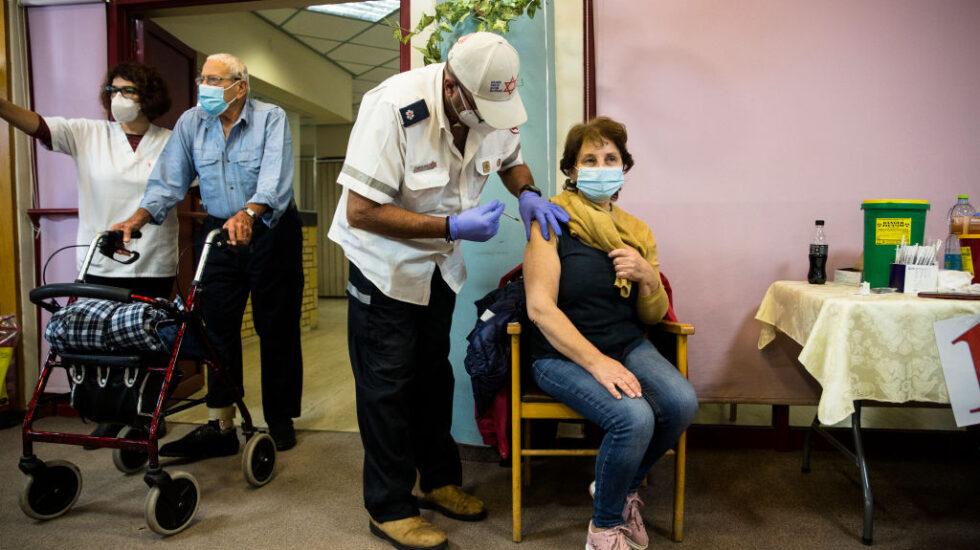The world’s first analysis of the real-world effectiveness of the Pfizer Covid-19 vaccine strongly suggests it works even better than the pharma giant claims.
“Israel’s Maccabi Healthcare Services revealed Monday that only 0.015 percent of people” — just 20 out of 128,600 — “are getting infected in the week after receiving their second shot,” reports the Times of Israel.
That’s less than one-quarter the infection rate seen in Israel’s general population.
“The Maccabi study lacked a control sample,” the newspaper says, but quotes a leading immunologist, Cyrille Cohen, as saying “that if general Israeli society is treated as an ‘imperfect’ control group, his calculation indicates that the vaccine is slightly exceeding the 95% effectiveness predicted by Pfizer’s clinical trial.”
In a statement, Maccabi called its data “very encouraging.”
“Israel is a world leader with its rapid vaccine rollout, though the data also comes during a nationwide lockdown that has been helping to stem contagion. Israelis began receiving first shots of Pfizer’s vaccine on Dec. 19,” Reuters reports.
More than 2.6 million Israelis have received one dose of the vaccine, and about 1.2 million have gotten two — out of total population of roughly 9 million.
Israel “is providing Pfizer with weekly data updates on its vaccine campaign under a collaboration agreement that may help other countries fine-tune their own inoculation drives,” Reuters says.
Anat Ekka Zohar, the Maccabi analyst behind the research, told the Times of Israel that none of the 20 vaccine recipients who did contract the virus was hospitalized or developed a fever higher than 101.3 F.
“That may be an indicator that the vaccine prevents serious illness even when people are infected,” the newspaper says, cautioning that Zohar notes it is “impossible to know what trajectory their symptoms would have taken without the vaccine.”



